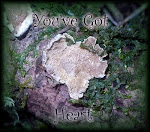I have been trying my hand at a new art form. It is called Sumi, or Ink and Wash painting.
A few years ago, my children gave me a beautifully embroidered box. Inside, gently protected by a velvet like cloth, were two sticks of pressed charcoal, a tiny porcelain bowl for water and an equally small spoon. There was a palm-sized piece of flat charcoal, with two depressions in it--a teaspoon sized area for a teeny spoon of water and another smaller impression to rest the wet brush. The stick of charcoal, rubbed against the charcoal indentation filled with water, produced a darkish ink. Two brushes made with real hair were included.
Painting in this medium with these brushes is unlike anything I've ever done. It is inexact and one never knows what the brush will do--sometimes it seems to have a mind of its own. Therefore, it is no surprise that an Ink and Wash painting is said to capture the spirit of the subject. So, to paint a flower, there's no need to portray it exactly as one sees it--instead, the goal is to convey the subject's liveliness and fragrance--to capture the unseen presence of that which is being painted.
Here is an Ink and Wash painting of a Broad-Leaf Dock, a plant I often find growing in my garden. I even wrote a Haiku poem about it!
Roots grow deep and firm.
Long leaf to heal the fiery burn.
Cools the painful scorch.
~Beth L. Niquette
I discovered the broad-leafed dock can be found wherever stinging
nettles grow. Nettles are prolific here in the Willamette Valley. What I didn't know, is when one is stung by the nettle, a scrunched pinch of the leaf of the broad-leafed dock placed upon the area, will
instantly take away the sting.
In times past, the broad-leafed dock was said to be good for the treatment of blisters, burns and scalds. The roots were used to make a tea which was said to be helpful in the treatment of jaundice, boils and coughs. An infusion made from the root was even thought to reduce acne and other such skin problems.




















